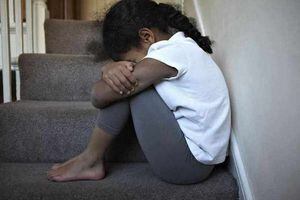Wolverhampton father arrested for 'having too much control over daughter'
A father has been arrested on suspicion of having too much control over his daughter, in one of the first cases of its kind in the country.

The 54-year-old was held from his Wolverhampton home last night under new 'coercive control' laws, aimed at protecting people caught in abusive or controlling relationships.
West Midlands Police say his daughter alleges that he controlled her 'finances, movement and contact with friends'.

The legislation to make coercive and controlling behaviour an offence came into force on December 29. It carries a maximum prison sentence of five years, a fine, or both.
Speaking ahead of a conference hosted in the West Midlands on the laws in December, WMP's Det Supt Angela Whitaker said: "The new law will help protect victims by outlawing sustained patterns of behaviour that stop short of serious physical violence, but amount to extreme psychological and emotional abuse.
"It will help address what we have found; victims are controlled in a variety of ways with the abuse not always obvious. They can have every aspect of life controlled by their partner, often being subjected to daily intimidation and humiliation.
"Coercive and controlling behaviour can include the abuser preventing their victim from having friendships or hobbies, refusing them access to money and determining aspects of their everyday life."
The new law is designed to tackle behaviour that might not be a crime in its own right.
Such behaviours might include:
isolating a person from their friends and family;
depriving them of their basic needs;
monitoring their time;
monitoring a person via online communication tools or using spyware;
taking control over aspects of their everyday life, such as where they
can go, who they can see, what to wear and when they can sleep;
depriving them of access to support services, such as specialist
support or medical services;
repeatedly putting them down such as telling them they are worthless;
enforcing rules and activity which humiliate, degrade or dehumanise
the victim;
forcing the victim to take part in criminal activity such as shoplifting,
neglect or abuse of children to encourage self-blame and prevent
disclosure to authorities;
financial abuse including control of finances, such as only allowing a
person a punitive allowance;
threats to hurt or kill;
threats to a child;
threats to reveal or publish private information (e.g. threatening to out someone).
assault;
criminal damage (such as destruction of household goods);
rape;
preventing a person from having access to transport or from working.[/breakout]





